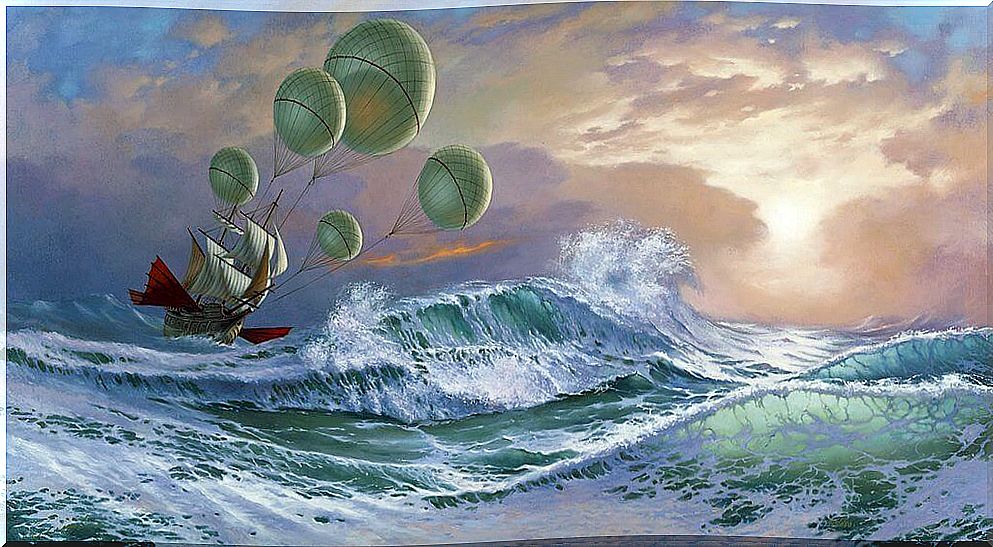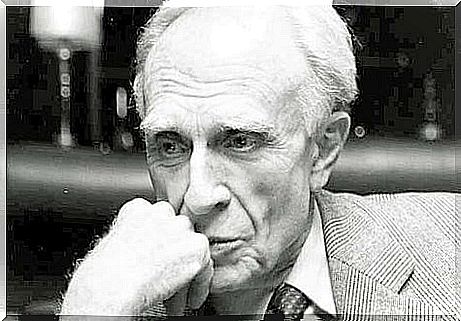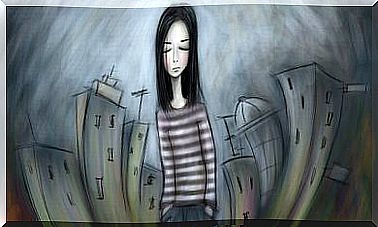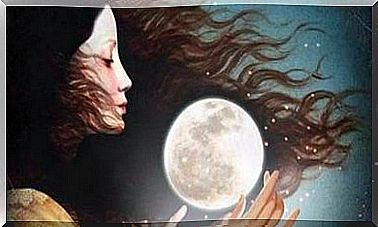Morel’s Invention: Precious Reflection On Immortality

The fear of death is among the most ancient fears of the human being; the desires of eternal life and love have always been among the most desired by humanity. Morel’s invention , by the Argentine writer Adolfo Bioy Casares, combines these fears and desires, questions them, reflects on them and proposes new ways to deal with them.
Morel’s invention also inspired films, plays and series. Examples are the 1961 film Last Year in Marienbad , the Lost seriesor the 1986 Argentine film Hombre aiming at the southeast (Man looking Southeast) . The novel, published in 1940, paved the way for the science fiction genre in Latin America.
Bioy Casares achieved great recognition in her native Argentina. Friend of Borges and linked to the Ocampo sisters, being married to one of them, he surrounded himself with the most extraordinary writers of the time in a period in which Buenos Aires was the scene of numerous literary movements. Such was his friendship with Borges that he wrote the prologue to Morel’s Invention .
Fiction and everyday life in Morel’s Invention
We could say that Bioy Casares was a precursor, because he knew how to mix everyday elements with science fiction. In your novels we appreciate very realistic characters in a not so realistic environment.
In Morel’s Invention we have a main character, the fugitive, who lives on a remote island on the run from the law. We don’t know his name or what he did to be forced to run away from the law, but we identify him as an everyday character, whose emotions are very real.
The island where he lives has been abandoned for years now, the buildings are old and in ruins. He soon realizes that strange things are happening there, some intruders enter the scene who repeat their actions and for which he seems to be invisible.
Among the intruders is Faustine, a young woman with whom the fugitive falls in love, on numerous occasions he tries to talk to her, but she seems not to see him, it is as if he did not exist. On the other hand we have Morel, a scientist who also seems to be in love with the young Faustine and whom the fugitive detests.
We will soon realize that these intruders are nothing more than images of a past that alludes to people who were once on the island. Morel devised a machine capable of recording all these movements and all these people, he was able to save their essence, their desires, their thoughts… their whole being. In this way they would live eternally in a happy memory that they would not remember, something like the eternal return of Nietzsche, but reliving a week of their life for eternity.
Fear of death and immortality in fiction
Death is part of us since we are born, every day, every minute and every second of our life brings us a little closer to it. The problem comes when it turns into fear and you have a hard time accepting it. To overcome this fear, some religions and philosophical currents offer us the idea of ”the other life”: a promise of a better life after death.
The belief that man is the union of body and soul says that, to free the immortal soul, we must act by dealing with certain issues and be good people. In this way our immortal part, after we die on the physical plane, will be able to live in peace for eternity.
Other religions, such as Buddhism, propose an immortality based on reincarnation. What these faith-related stories demonstrate is that, since ancient times, humanity has sought ways to overcome death, to explain why we die and, in this way, to try to accept it in the hope of a dissociated spiritual life. from physical events.
When we have the opportunity to make a portrait of immortality in the world of fiction, we imagine immortal beings such as the elves of the Lord of the Rings or mythological beings, that is, deities. In this way we see that the price to pay for immortality or to try to emulate it is always high. In The Invention of Morel , the scientist Morel created a machine capable of giving us the immortality of the soul, but this will have a very high cost to our mortal body.
Through the cinema and the new technologies of the time, Bioy Casares raises many reflections and even anticipates what we know today as virtual reality. It presents us with other ways to immortality. Immortality in the work Morel’s invention is sought by the protagonist from the beginning, but in an indirect and unconscious way.
Literature is, in a sense, immortal, we relive an author every time we read his works, literature will remain for posterity and, in this way, it will be immortal. It is another form of immortality. The protagonist narrates the facts in a sort of diary with the hope that someone will find him in the future, to record it in writing; we can say that he is looking for such immortality.

Love and immortality in Morel’s Invention
When intruders can’t see the fugitive, when they ignore his existence, he refuses to believe they haven’t seen him, he prefers to think it’s a plan to capture and deliver him. In other words, it refuses not to exist.
Intruders cannot see it because they are images, memories, but the fugitive cannot accept that invisibility, and in reality no human being would accept such a thing. Not existing, being invisible to all, is a kind of death for the individual, something unacceptable because it is a death in life.
The novel also explores love, its idealization and how it keeps the fugitive alive: it is his only escape, his only desire. In fact, love is as natural and human as death, like the fear of loneliness expressed by the protagonist.
Despite the consequences that would result from being discovered, the fugitive imagines evil plans towards him, thinks they are conspiring to betray him and, in the end, this idea does not even mind too much. This is because he fears loneliness and these thoughts are a typically human trait. Likewise, jealousy is also present in him. He realizes the illogic of his thoughts, but finds it difficult to contain them, like anyone who is exposed to a similar situation.
In this case , love is linked to the Platonic ideas of the same and also to the literary theme religio amoris, in which the beloved is shown as unattainable, superior and divine. Furthermore, love in the novel leads to immortality; it will be the triggering factor of everything, it will awaken in Morel the desire to become immortal together with Faustine and it will make the same desire emerge also in the fugitive.
Bioy Casares, thanks to his passion for cinema and his great ability as a storyteller, gives us an almost visual work, worthy of a film script, presents us with a character who loses his mind on several occasions, who writes to leave a trace of everything the one who lives on the island, but he is a very human character and, surely, anyone would act similarly in such a situation. It is a work that is certainly worth reading, which invites reflection.









